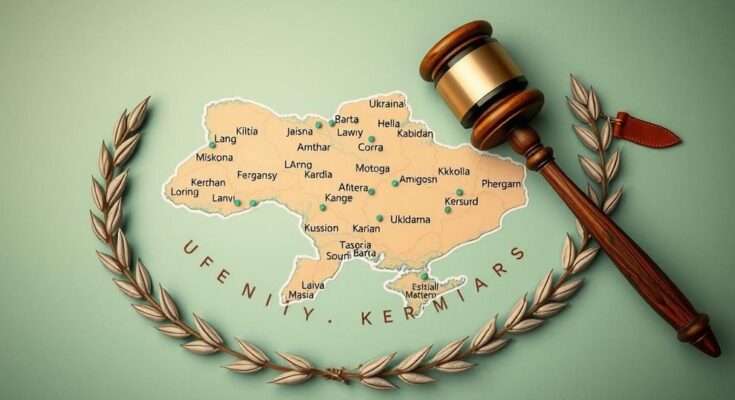Moscow views President Trump’s push for a Ukraine cease-fire as an opportunity for economic and geopolitical gains. While Trump aims for a swift resolution, Putin prioritizes broader goals that require significant concessions. Negotiations are set to progress in Saudi Arabia, as the Kremlin seeks to leverage its position and maintain military pressure in Ukraine.
Moscow perceives President Donald Trump’s pursuit of a cease-fire in Ukraine as a strategic opportunity to garner both economic and geopolitical advantages. Despite Trump’s commitment to ending hostilities, Russian President Vladimir Putin’s primary goals remain unchanged. Upcoming discussions between American and Russian officials in Saudi Arabia will focus on technical aspects of a partial cease-fire, although Mr. Putin insists on securing significant concessions beforehand.
Strategically, the Kremlin is prepared to leverage Mr. Trump’s desire for a peace agreement while simultaneously maintaining its military offensive in Ukraine. As discussed at a recent security conference in New Delhi, some Russian officials believe the negotiations concerning Ukraine and U.S.-Russia relations are separate processes, with Putin viewing American relations as paramount.
Vyacheslav Nikonov, a member of Russia’s Parliament, stated that the ongoing conflict is of lesser significance to Putin compared to fostering better relations with the United States. There is a possibility that engagement with Trump could unlock desirable economic benefits, such as spare parts for aircraft, and may even influence NATO presence in Europe.
Aleksandr A. Dynkin, an adviser to the Russian Foreign Ministry, noted that Trump prefers swift negotiations and might abandon the Ukraine issue if progress proves challenging. Consequently, Putin actively seeks to maintain Trump’s interest, even presenting a portrait of Trump as a diplomatic gesture during a recent meeting.
Putin’s ambitions regarding Ukraine include ensuring it remains outside NATO, reining in NATO’s influence in Eastern Europe, limiting Ukraine’s military capabilities, and asserting some sway over Ukraine’s internal affairs. Feodor Voitolovsky, an expert at the Institute of World Economy and International Relations, emphasized that Russia desires a comprehensive agreement prior to any cease-fire, potentially involving UN peacekeeping forces that exclude NATO troops.
The Kremlin aims to align with Trump’s business-oriented mindset to negotiate a favorable long-term arrangement. Additionally, there may be moves toward alleviating U.S. labeling of Russia as an “unfriendly country,” which restricts American business activities in Russia. Vital discussions may center on the aviation sector, addressing difficulties Russian airlines face with American aircraft.
Although a rapid alleviation of sanctions appears unlikely under Trump, Anastasia Likhacheva from the Higher School of Economics suggested that a warming of U.S.-Russia relations could lead to decreased enforcement of sanctions, bolstering the global operational capacity of Russian enterprises.
In summary, Russia intends to extract strategic advantages from a potential negotiation with the United States while maintaining its aggressive posture in Ukraine. The outcome of discussions will likely pivot on the balance between these aims and any concessions made from both sides.
In conclusion, Russia regards negotiations with President Trump as a strategic avenue to achieve broader economic and geopolitical goals while still pursuing its military objectives in Ukraine. Through careful maneuvering, Moscow aims to secure concessions that favor its interests in various domains, including aviation and sanctions relief. The unfolding talks will be critical in determining whether a balance can be struck between achieving peace in Ukraine and fulfilling Russia’s long-term ambitions.
Original Source: www.nytimes.com




